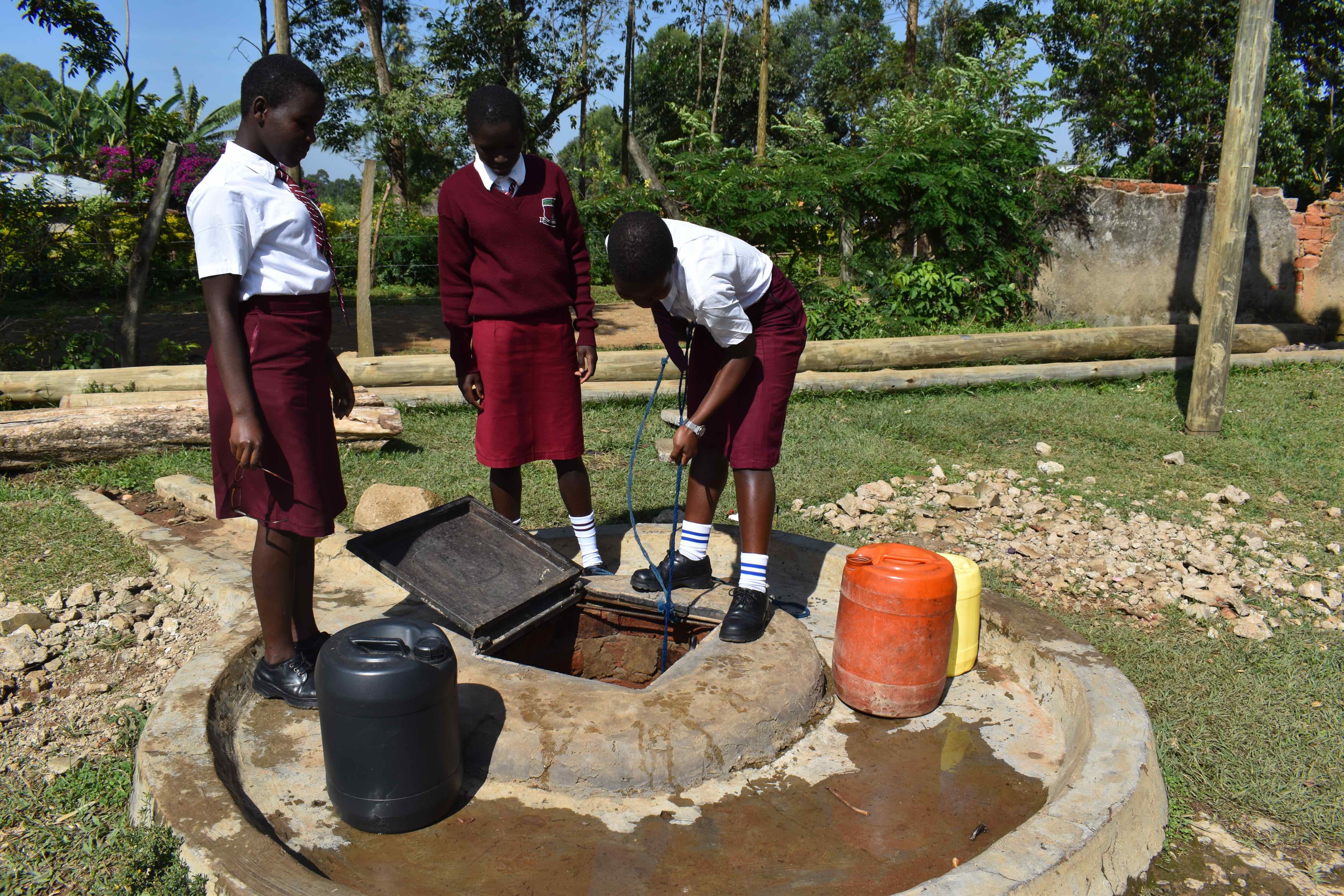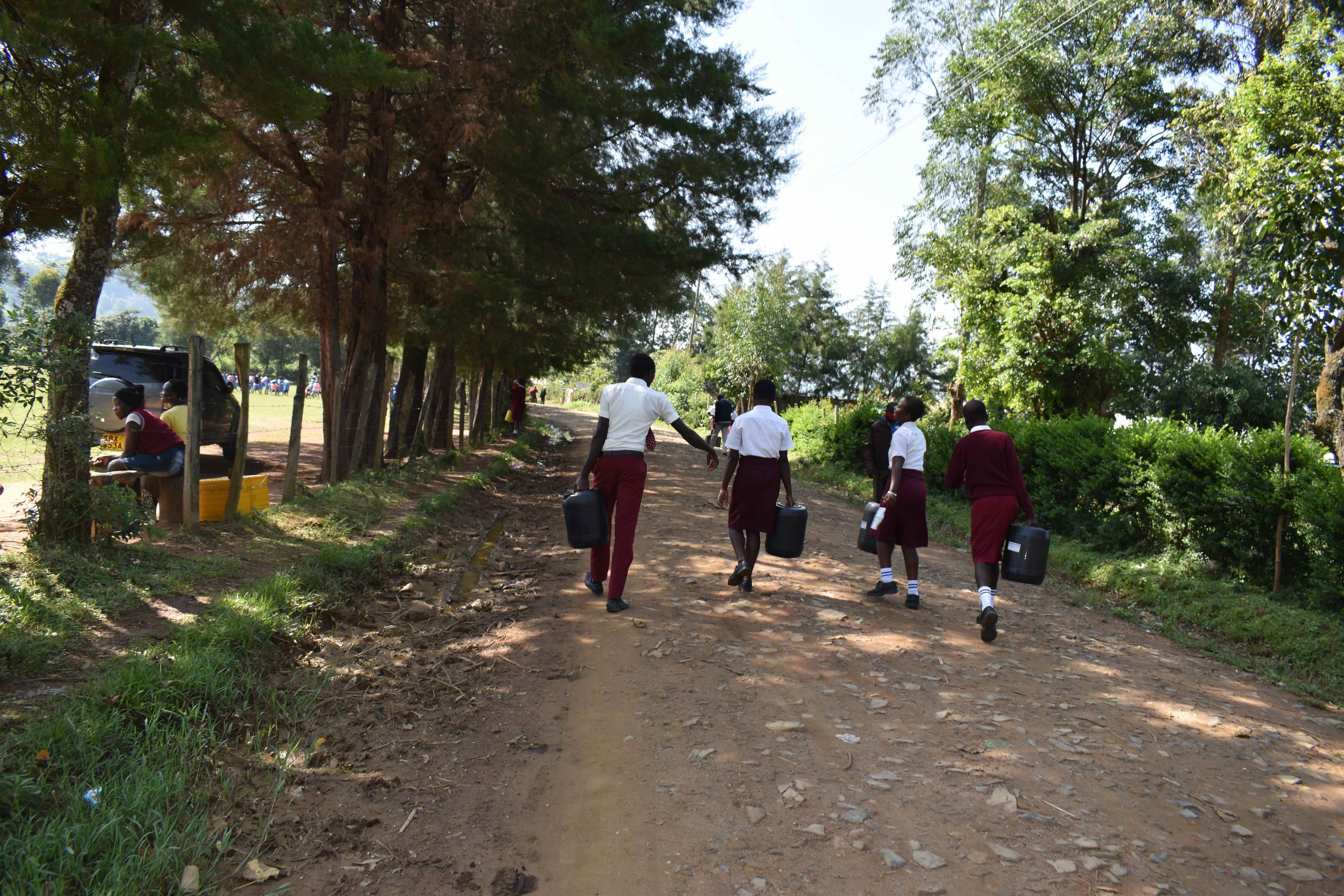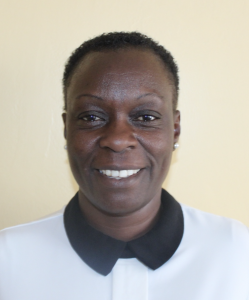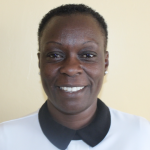The 254 students at Mukhonje "K" Mixed Secondary School share a well with the neighboring primary school. Since queues to fetch water are always long in the morning, this means the secondary school students go without water all morning and collect for themselves and their 17 teachers during lunchtime, which makes for distracted, dehydrated students at all times of the day.
The water from the primary school's well is often contaminated due to dirty containers the students use to collect water. Absenteeism is a common occurrence due to waterborne diseases as a result. It is also unsafe for fetching due to the well's large opening.

Mukhonje Secondary School has its own 2000-liter rain catchment tank that serves the school when it rains. However, the water is not enough for the school's ever-growing population even during the rainy season, let alone during the drier weather.
"We need our own water as a school so that we can concentrate on our studies instead of wasting time going to fetch water from the primary school section," said 17-year-old Joshua K.
The school's principal, Martha Wanjala, is more than ready for a solution to the school's water issues. "We do not get enough water to use in school."
Madam Wanjala went on to explain that, due to the secondary school's use of the primary school's well, the secondary school is often called upon to contribute to maintenance fees. The well once had a hand pump, but it broke due to overuse.

"We are tired of paying money when the breakdown of the borehole occurs," Madam Wanjala said. "It really affects us because sometimes we do not have enough money."
So many of Mukhonje Secondary School's problems would be easily fixed with a close, reliable source of safe water.
What We Can Do:
New Well
We conducted a hydrogeological survey at this school and the results indicated the water table beneath it is an ideal candidate for a borehole well. Due to a borehole well's unique ability to tap into a safe, year-round water column, it will be poised to serve all of the water needs for this school's large population, even through the dry months.
The school will help collect the needed construction materials such as sand, rocks, and water for mixing cement. They will also provide housing and meals for the work team, in addition to providing local laborers. We will complement their materials by providing an expert team of artisans and drilling professionals, tools, hardware, and the hand-pump. Once finished, water from the well will then be used by the school’s students and staff for drinking, handwashing, cooking, cleaning, and much more.
Handwashing Stations
The student health club will oversee the two new handwashing stations we will provide, and make sure they are kept clean and in working condition. The club leaders will fill the handwashing stations with water daily and make sure they are always supplied with a cleaning agent such as soap or ash.
VIP Latrines
We will construct two triple-door latrine blocks using local materials that the school will help gather. Three doors will serve the girls and three doors will serve the boys. All of these new latrines will have cement floors that are designed to be easy to use and to clean. And with a borehole right on school property, there should be enough water to keep them clean.
Training on Health, Hygiene, COVID-19, and More
We will hold a one-day intensive training session with students, teachers, and parents. This training will cover a wide range of topics including COVID-19 symptoms, transmission routes, and prevention; personal and environmental hygiene; and the operation and maintenance of the borehole, latrines, and handwashing stations. There will be a special emphasis on handwashing.
Our team of facilitators will use a variety of methods to train, including participatory hygiene and sanitation transformation, and asset-based community development. We will initiate a student health club, which will prepare students to lead other pupils into healthy habits at school and at home. We will also lead lectures, group discussions, and provide illustrative handouts to teach health topics and ways to promote good hygiene practices within the school including handwashing and water treatment. We will then conduct a series of follow-up trainings before transitioning to our regularly scheduled support visits throughout the year.
We and the school strongly believe that all of these components will work together to improve standards at this school, which will help lead to better student academic performance and will help unlock the opportunity for these students to live better, healthier lives.




 Borehole Well and Hand Pump
Borehole Well and Hand Pump
 Rehabilitation Project
Rehabilitation Project


































